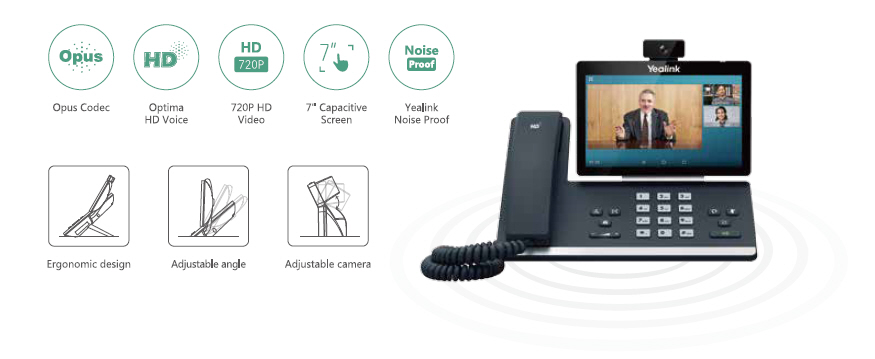Introduction
In today's fast-paced and technology-driven world, businesses are constantly looking for ways to improve communication and streamline their operations. One of the most significant advancements in telecommunication is the transition from traditional phones to Voice over Internet Protocol (VoIP) phones. This article will explore what to expect when making this transition, including the benefits, challenges, and key considerations for businesses.
What is a VoIP Phone?
Before delving into the details of transitioning to VoIP phones, it is essential to understand what exactly a VoIP phone is. VoIP stands for Voice over Internet Protocol, which refers to the technology that allows users to make phone calls using an internet connection rather than traditional telephone lines. A VoIP phone converts voice signals into digital data and transmits them over the internet.
The Benefits of VoIP Phone Service
Improved Call Quality
One of the primary advantages of using a VoIP phone service is the improved call quality. Traditional phones often suffer from static or background noise, which can be frustrating for both parties involved in a conversation. With VoIP phones, calls are transmitted digitally, resulting in crystal-clear audio without any interference.
Cost Savings
Another significant benefit of transitioning to VoIP phones is cost savings. Traditional phone systems can be expensive to install and maintain, with additional charges for long-distance or international calls. In contrast, VoIP phone service typically offers unlimited calling plans at a fraction of the cost.
Flexibility and Scalability
VoIP phones offer unparalleled flexibility and scalability for businesses. Unlike traditional phone systems that require physical wiring and hardware installations, VoIP phones operate through software applications or specialized IP desk phones. This allows businesses to easily add or remove lines as needed without any hassle.
Advanced Features
VoIP phone service offers a wide range of advanced features that can enhance business communication and productivity. These features include call forwarding, voicemail to email transcription, auto-attendants, conference calling, and more. With VoIP phones, businesses can access these features without the need for additional hardware or business telephone systems complex setups.
Key Considerations for Transitioning to VoIP Phones
While the benefits of transitioning to VoIP phones are substantial, businesses must consider several factors before making the switch. Here are some key considerations:
Internet Connection Reliability
Since VoIP calls rely on an internet connection, it is crucial to ensure that the internet service is reliable and stable. Businesses should have a robust internet infrastructure capable of handling the increased bandwidth requirements of VoIP phone systems.

Network Security
As with any technology that relies on the internet, network security is a top priority when deploying VoIP phones. Businesses must implement robust security measures to protect against potential cyber threats and unauthorized access to sensitive information.
Compatibility with Existing Systems
Before transitioning to VoIP phones, businesses need to assess their existing systems and determine if they are compatible with the new technology. This includes evaluating compatibility with CRM software, call center applications, and other essential business tools.
Training and Support
Transitioning to VoIP phones may require employees to learn new processes and technologies. It is essential for businesses to provide adequate training and ongoing support to ensure a smooth transition and maximize employee productivity.
FAQ
Q: What is the difference between a traditional phone system and a VoIP phone system?
A: Traditional phone systems rely on physical telephone lines for communication, while VoIP phone systems use internet connections to transmit calls digitally.
Q: Can I keep my existing phone number when switching to VoIP?
A: Yes, in most cases, you can port your existing phone numbers to a VoIP service provider. However, it is recommended to check with your chosen provider beforehand.
Q: Do I need special equipment for using VoIP phones?
A: While specialized IP desk phones are available for VoIP phone systems, many providers also offer software applications that allow you to use your computer or smartphone as a VoIP phone.
Q: Is VoIP phone service suitable for small businesses?
A: Absolutely! VoIP phone service is an excellent choice for small businesses as it offers cost savings, flexibility, and advanced features that can enhance communication and productivity.
Q: Can I make international calls with VoIP phones?
A: Yes, with VoIP phone service, making international calls is often more affordable compared to traditional phone systems. Many providers offer international calling plans customizable small business phone system or even unlimited international calling options.
Q: How reliable is the call quality with VoIP phones?
A: The call quality of VoIP phones largely depends on the stability and reliability of your internet connection. With a strong internet infrastructure, call quality can be just as good or even better than traditional phones.
Conclusion
Transitioning from traditional phones to VoIP phones offers numerous benefits for businesses, including improved call quality, cost savings, flexibility, and advanced features. However, it is essential to consider factors such as internet connection reliability, network security, compatibility with existing systems, and adequate training and support. By carefully evaluating these considerations and selecting a reputable VoIP service provider, businesses can expect a seamless transition that enhances communication efficiency and overall productivity. So why wait? Make the switch to VoIP phones today and reap the rewards for your business.